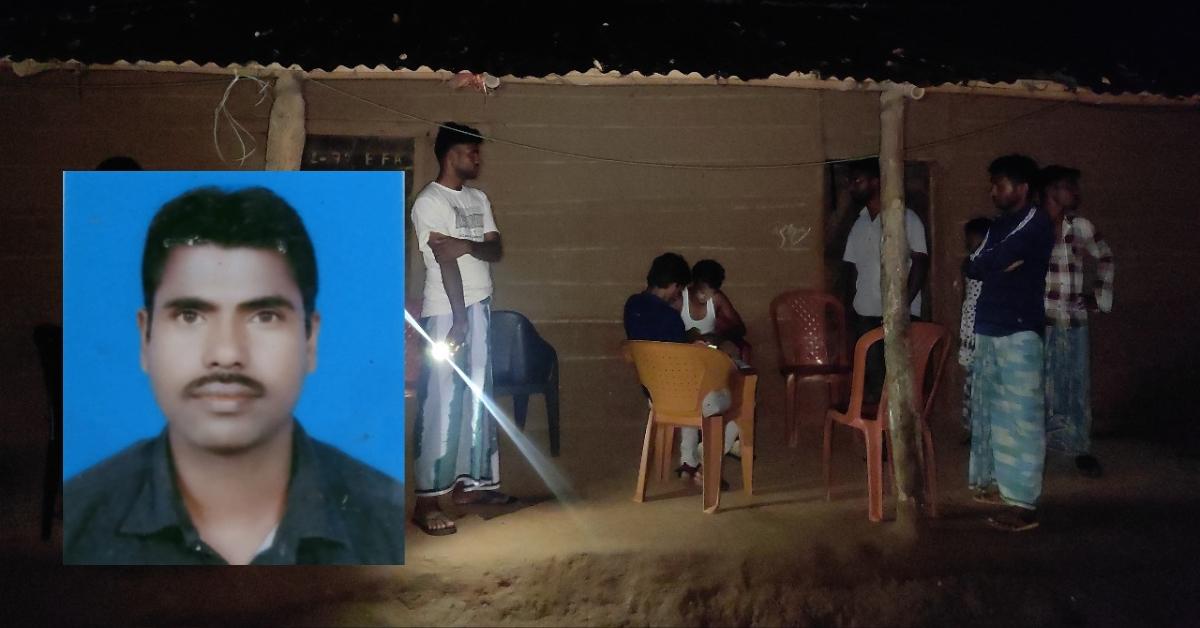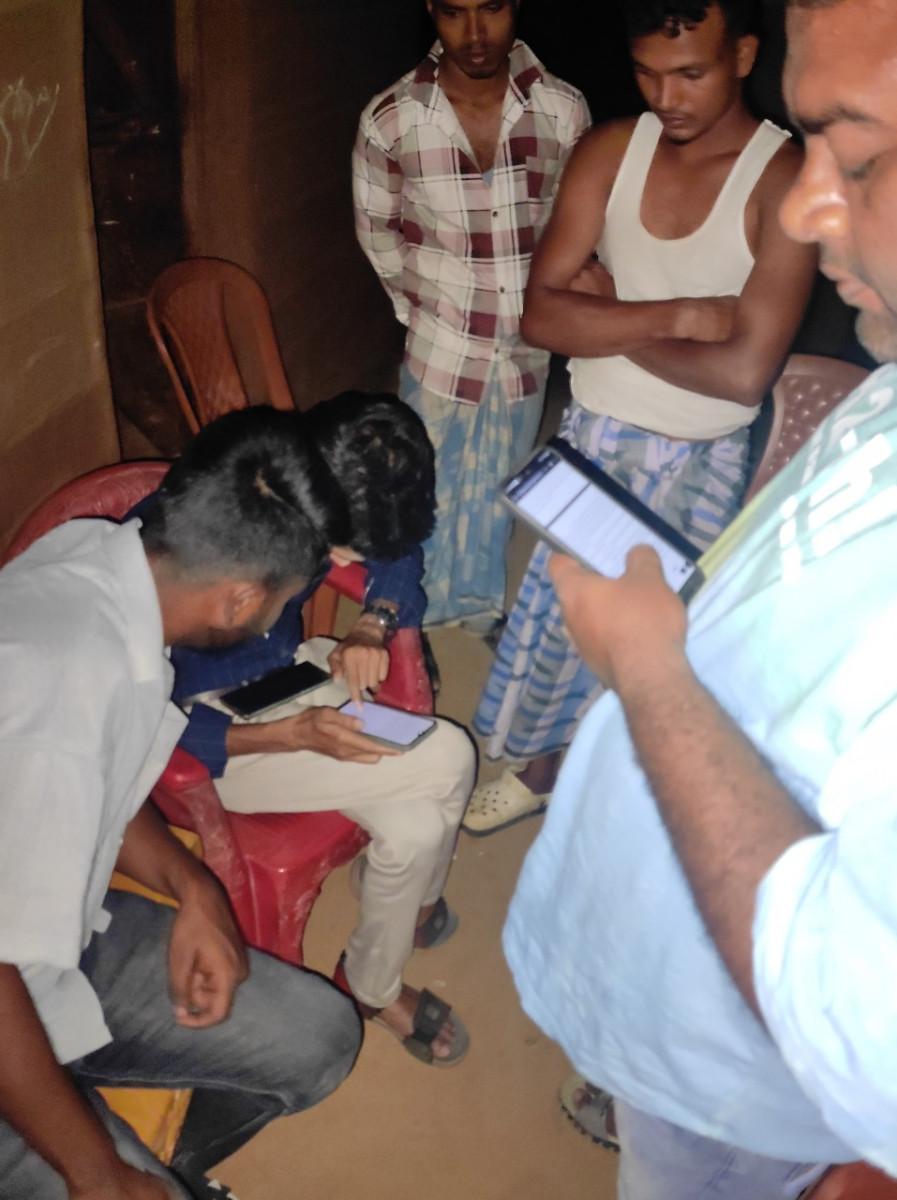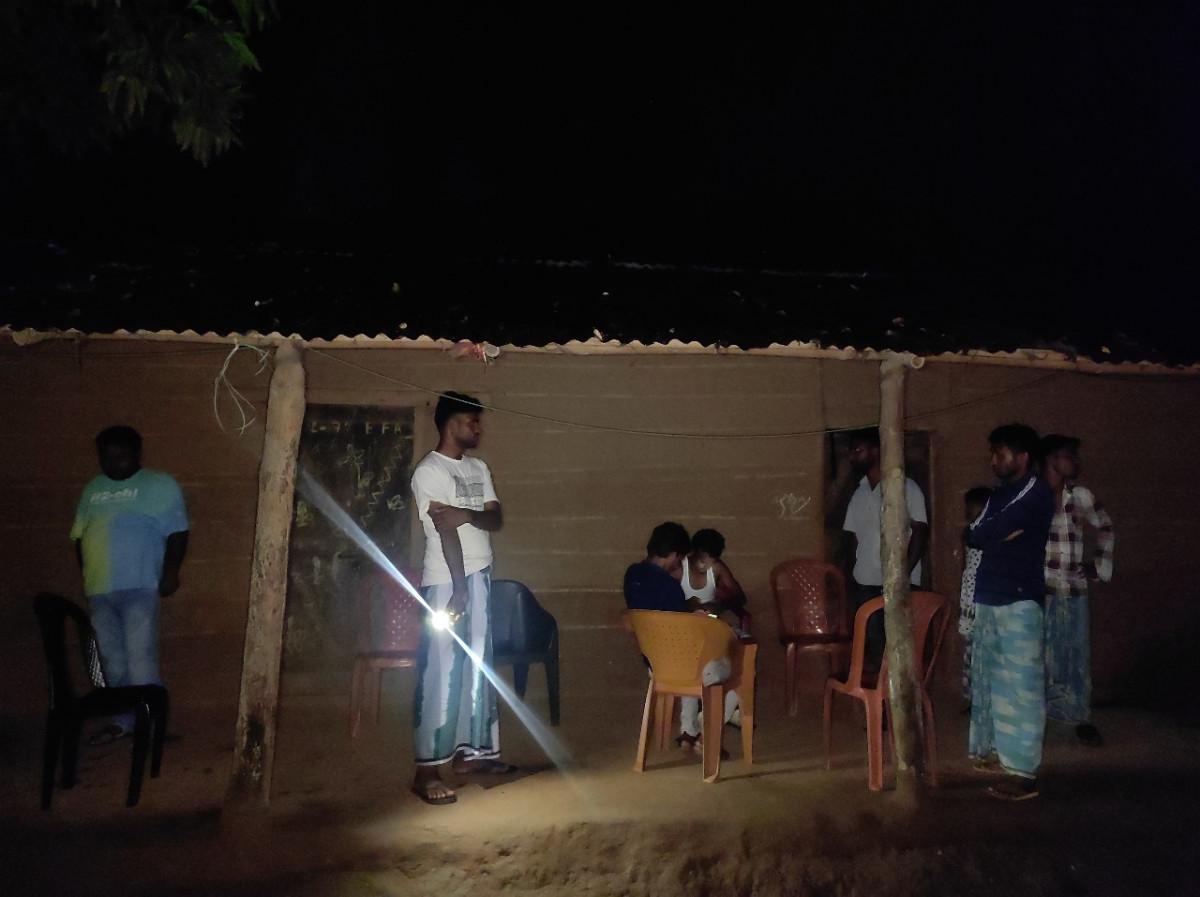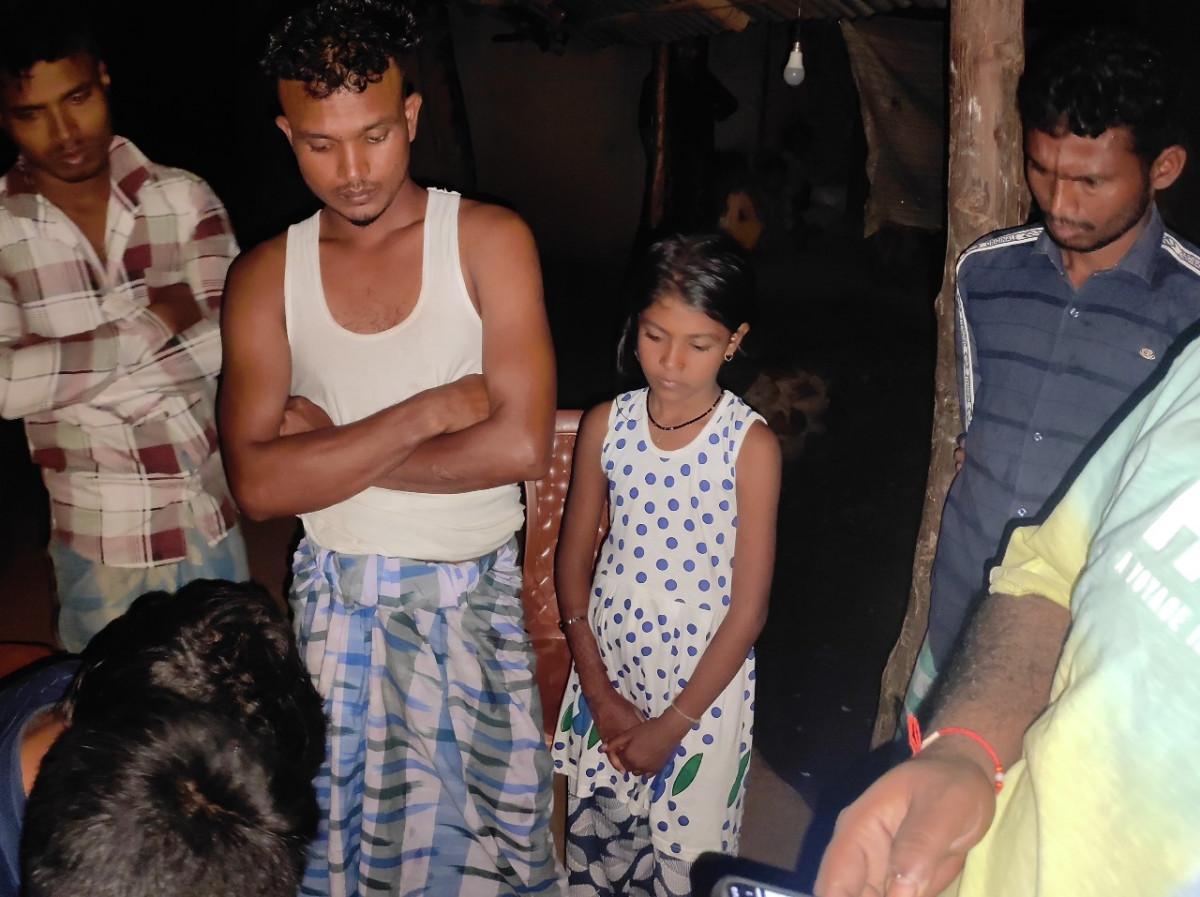
Declared Foreigner, buried Indian: The tragic death of Abdul Matleb in Assam’s detention camp Branded Bangladeshi by the State and detained without extinguishing his legal remedies, Abdul Matleb died in custody — only to be returned to his family as an Indian. His story exposes the human cost of Assam’s broken citizenship regime
23, Apr 2025 | CJP Team
Before his death, he was branded a foreigner. In death, his body was returned to his family as an Indian. This is the tragic irony that defines the story of Md. Abdul Matleb — also known in some documents as Matleb Ali — a 43-year-old daily wage worker who died on April 17, 2025, inside the Matia Transit Camp in Assam’s Goalpara district.
Declared a ‘foreigner’ by Foreigners’ Tribunal No. 10 in Nagaon on October 31, 2016 (Case FT(D) No. 24/2015), Matleb had managed to secure bail from the Gauhati High Court in February 2017. But in September 2024, the same court upheld the Tribunal’s declaration. He was detained and sent to the Matia Transit Camp — Assam’s largest and newest detention facility — on December 5, 2024.
Every week, CJP’s dedicated team in Assam, comprising community volunteers, district volunteer motivators, and lawyers, provides vital paralegal support, counseling, and legal aid to many affected by the citizenship crisis in over 24 districts in Assam. Through our hands-on approach, 12,00,000 people successfully submitted completed NRC forms (2017-2019). We fight Foreigner Tribunal cases monthly at the district level. Through these concerted efforts, we have achieved an impressive success rate of 20 cases annually, with individuals successfully obtaining their Indian citizenship. This ground level data ensures informed interventions by CJP in our Constitutional Courts. Your support fuels this crucial work. Stand with us for Equal Rights for All #HelpCJPHelpAssam. Donate NOW!
For five months, Matleb remained incarcerated in this high-security detention camp, far from his home in Hojai. He was seriously ill for much of that time of detention— taken to hospitals several times, even admitted for 17 days before Eid. Yet, according to his family, he had no serious health issues before his detention. Whatever illness consumed him began only after he was imprisoned. Even as he deteriorated, his family was never provided with a single medical record — neither during his detention, nor after his death.
On the evening of April 17, 2025, the family received a call from Matia officials. Matleb’s condition had worsened, they were told, and they should come see him. Given the long journey — over 300 kilometres from Hojai to Goalpara — the family asked if they could leave the next morning. The officials agreed. But just a few hours later, around 1 a.m., another call came. Matleb had been shifted to the Guwahati Medical College and Hospital (GMCH).
His wife, Husanara Begum, and her brother, Sarmul Islam, immediately left for Guwahati at 3 a.m. They reached the hospital by morning. But instead of finding Matleb under treatment, they were met with silence and evasion. It wasn’t until 3 pm — after hours of waiting and pleading — that Sarmul was allowed into the morgue. That is where he finally saw his brother-in-law, lifeless.
Abdul Matleb was the sole breadwinner for his family — a wife and four daughters, three of them still in school. He worked as a rock breaker, a job his wife also took up to support the household. But now, caught in mourning rituals and with no son to assist her, she cannot return to work. The family is left with no income, no explanation, and no justice.
Even during his medical visits, Matleb was treated as a criminal. He was often taken to hospitals in handcuffs. “Where would he run in that condition?” his brother-in-law had asked the police once. Only then were the cuffs removed.
In the most heart-wrenching moment of this story, the authorities who had insisted Matleb was a Bangladeshi handed over his body to be buried in the land where he was born, lived, and worked all his life. Initially, the family refused to accept the body. “If he was Bangladeshi, send his body there,” they told the officials. But eventually, they relented. His daughters, they felt, should have the chance to see their father one last time.
He was buried in a small graveyard just a few steps from his home in Hojai — the same place his ancestors were buried. A man declared a foreigner by the State was returned in death to the soil of his birth.
This tragedy did not happen in isolation. Similar deaths have occurred in Assam’s detention centres — and in each case, the bodies were quietly returned to their families in India. These stories lay bare the moral and administrative collapse of the state’s ‘foreigner detection’ mechanism.
When a team from Citizens for Justice and Peace (CJP) visited the family, there were no words that could make sense of the grief. Matleb’s youngest daughter, Abida, who studies in Class IV, could not speak. Her eyes were dry, her face blank. Her smile, her family said, has not returned.



Sarmul Islam, her maternal uncle, recounted the events while speaking to CJP Assam team, and said:
“We got a call at 9 pm on April 17 saying his health was failing. We told them we’d come early next morning. They said okay. Then around 1 am, they said he had been shifted to Guwahati. We left at 3 am. But when we reached, they kept us waiting for hours. Finally, after 3 pm, they showed us the body.”
“We didn’t want to accept the body. If he was a foreigner, send him to Bangladesh, we said. But we thought of the girls. They should at least get to see him one last time.”
“He never had a serious illness. All of this happened after he was taken to detention. He was taken to hospital four or five times. Only once was he in Guwahati for 13–14 days. They would call us, but never give us any reports. And every time, he was in handcuffs. Only once, after we requested, they removed them.”
“He had all his documents. This happened only because of two names — Abdul Matleb and Matleb Ali. That’s it. No one else in the family has a case. His parents, his relatives — all here. If he’s Bangladeshi, then they are too. But it was just him.”
Assam’s detention regime operates on a cruel paradox. People are declared foreigners on the flimsiest of grounds — spelling errors, document mismatches, legacy data discrepancies. They are then locked away in high-security camps, often far from their families, with little transparency, few legal safeguards, and no meaningful remedy.
Worse still, the system makes no sense even on its own terms. If Matleb was not Indian, why was his body given to his family in Hojai? Why was he buried in the local graveyard? The State has no answer. On behalf of CJP, a team of five set out early in the morning and travelled over eight hours to reach Abdul Matleb’s grieving family. But once there, we were left speechless. The pain in that home was beyond words, the moment beyond description. What can be said when a system, in the name of identifying ‘foreigners’, inflicts such relentless cruelty on its own people? Assam’s Foreigners Tribunals and detention camps have become a dark stain on our democracy—where those who belong are treated like criminals, and where justice is lost to bureaucracy and bias.
This issue has been raised repeatedly — by human rights organisations, especially CJP, in the national media, even in the Assam Legislative Assembly. Yet, the cycle of injustice grinds on.
Abdul Matleb was handcuffed in life and returned as an Indian only in death. In seeking to identify ‘foreigners’, the Indian State is erasing the dignity of its own citizens — and in cases like this, even their lives.’
Related:
CJP triumphs in securing bail for Assam’s Sahid Ali: A step towards restoring citizenship
SC: Only 10 deported, 33 of 63 contest foreigner status from the Matia Transit Camp, Assam
SC: Only 10 deported, 33 of 63 contest foreigner status from the Matia Transit Camp, Assam










